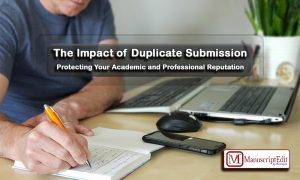Introduction
Imagine investing hours of your time and effort into a research paper or project, only to unknowingly face severe consequences for duplicating your work. The practice of duplicate submission, also known as self-plagiarism, can have far-reaching implications in academic settings. In this blog, we explore the potential consequences of duplicate submission, its impact on academic and professional reputation, preventive measures institutions can take, and the penalties associated with this act. So, let’s dive in and discover the hidden dangers of duplicate submission!
The Consequences of Duplicate Submission:
- Academic Integrity Compromised: Duplicate submission undermines the very foundation of academic integrity, devaluing the principles of originality, honesty, and intellectual growth.
- Stunted Personal and Professional Development: By recycling previous work, students miss out on the opportunity to expand their knowledge, research skills, and critical thinking abilities.
- Lost Credibility: Duplicating your work without proper acknowledgment erodes the trust that others place in your academic and professional capabilities.
Impact on Academic and Professional Reputation:
- Academic Reputation at Stake: Duplicate submission can lead to failing grades, academic probation, or expulsion. These repercussions cast a shadow on your academic journey and make it challenging to pursue further education or gain acceptance into esteemed programs.
- Professional Consequences: Submitting duplicate work can severely affect your professional reputation and compromise future job prospects, promotions, and growth opportunities.
Prevention and Detection Measures:
- Institutions should implement the following strategies to identify instances of duplicate submission: Raise Awareness: Inform students of the consequences of self-plagiarism and emphasize the value of producing original work.
- Plagiarism Checkers: Utilize advanced plagiarism detection tools that compare submitted work against vast databases to identify instances of duplicate content. These tools act as a powerful deterrent.
- Clear Guidelines and Support: Provide students with clear guidelines on citation practices, referencing, and the appropriate use of sources. Encourage open communication and guidance from professors to help students navigate the complexities of academic writing.
Penalties and Disciplinary Actions:
Institutions often impose penalties to discourage duplicate submissions:
- Failing Grades: Students may receive a failing grade for the assignment or course in which duplicate submission occurs.
- Academic Probation: Serious cases of duplicate submission can lead to academic probation, restricting access to certain academic privileges.
- Expulsion: In severe cases, institutions may resort to expulsion, effectively terminating a student’s academic journey within that institution.
Conclusion
Duplicate submission can have severe repercussions on academic and professional trajectories. As aspiring scholars, upholding academic integrity and producing original work that reflects our unique capabilities is crucial. Institutions must take proactive measures to prevent and detect duplicate submissions, thereby safeguarding education’s sanctity. Let us embrace the values of authenticity, growth, and creativity, ensuring that our academic and professional reputations shine brightly in a world that values individuality and integrity.
Remember, your education is a gateway to opportunities, and the choice to pursue it with integrity is yours. So, dare to be original, foster innovation, and let your voice be heard through your unique contributions! We will help you in your submission journey through our publication support services @manuscriptedit.com





